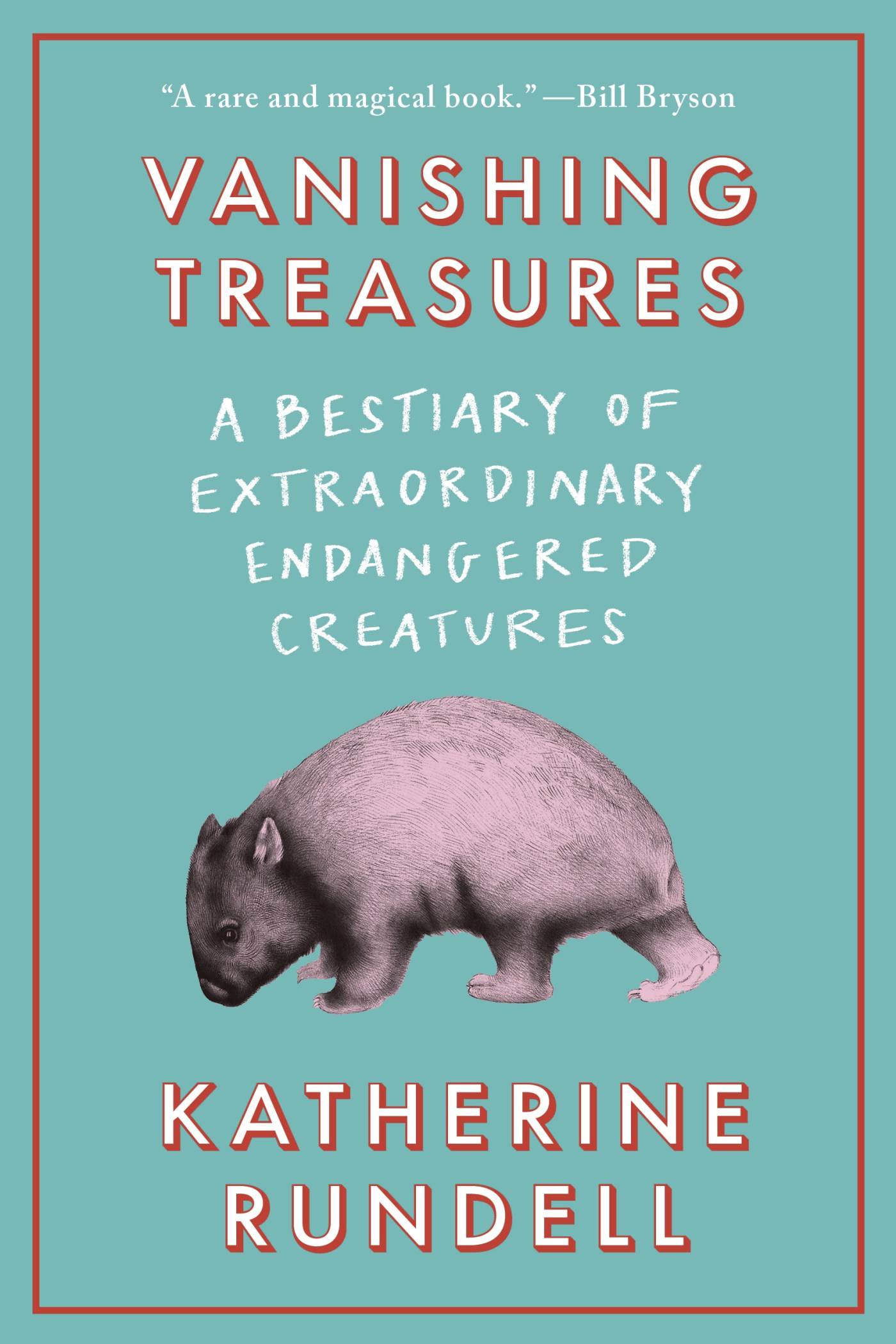
Review: ‘Vanishing Treasures’ will wow animal lovers
Katherine Rundell wears several hats with style and aplomb. She is a fellow of St. Catherine’s College, Oxford; she is an award-winning children’s writer; and she is a biographer, author of the magisterial “Super-Infinite: The Transformations of John Donne” — the Renaissance poet she convincingly claims to be “the greatest writer of desire in the English language.”
Now Rundell has written a book about animals that are under threat from extinction. Comprising 23 lively and informative profiles, “Vanishing Treasures” is an enthralling compendium of remarkable creatures, an urgent appeal for conservation and a joyful reminder that the natural world is “so startling that our capacity for wonder, huge as it is, can barely skim the edges of the truth.”
The chapter on bears is representative of the book as a whole. We get fun facts: Polar bears can smell us more than 18 miles away and swim 100 miles without stopping to rest. There are bear-themed literary snippets from Shakespeare, Byron and Rundell’s beloved Donne, plus an origin myth by way of a Chinese children’s tale.
There are also historical references, one being the grisly Elizabethan entertainment of bear-baiting. Setting a pack of dogs on a bear was, for one courtier, “a very pleasant sport to see.” Finally, there is an account of bears’ losing battle against humans: Polar bears stand on melting ice, sloth bears are tortured into dancing and sun bears are kept in cages and milked for their bile.
Every chapter contains sparkling nuggets that range from eye-opening to jaw-dropping to thought-provoking. Wombats can outrun a man. Elephants have been known to bury dead members of their herd. Pangolins keep their long tongues in an interior pouch near their hips.
Some trivia is sobering. In Atlanta, Ga., it is illegal to tie your giraffe to a streetlamp. However, it is not illegal “to import a cushion made from a freshly shot giraffe’s head with the eyelashes still attached,” as America has refused to designate the animals endangered, even though their numbers have dropped 40% in 30 years.
Rundell explains how we came to associate crows with cleverness, wolves with rapaciousness and bats with dark deeds. We learn about Rebecca, Calvin Coolidge’s pet raccoon, and Hoover, a talking seal. The more outlandish details include a Nazi propaganda campaign to use migrating storks as carriers.
The book is enriched by Rundell’s personal reflections and opinions, along with her experiences with animals and exhortations to protect them. As we read, it is hard not to share her awe and enthusiasm for her subjects.
It is equally hard not to delight at her prose: Swifts, which can sleep, and mate, in the air, “fly like a stroke of luck incarnate”; fermented Greenland shark tastes “like a very ripe cheese, left for a week in high summer in a teenage boy’s car.”
As befits a book packed with marvels, this is a marvelous book, one to enjoy and learn from.
Tribune News Service
‘VANISHING TREASURES’
By Katherine Rundell
Doubleday, $26
Grade: A

